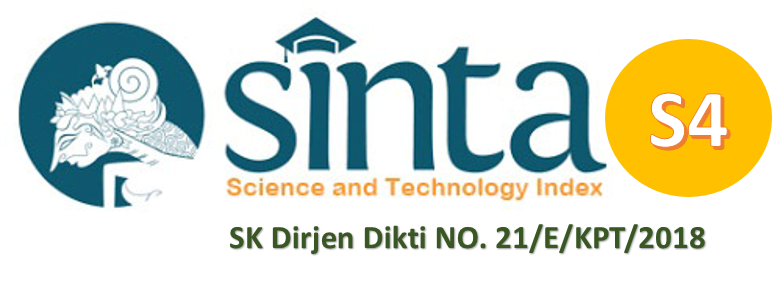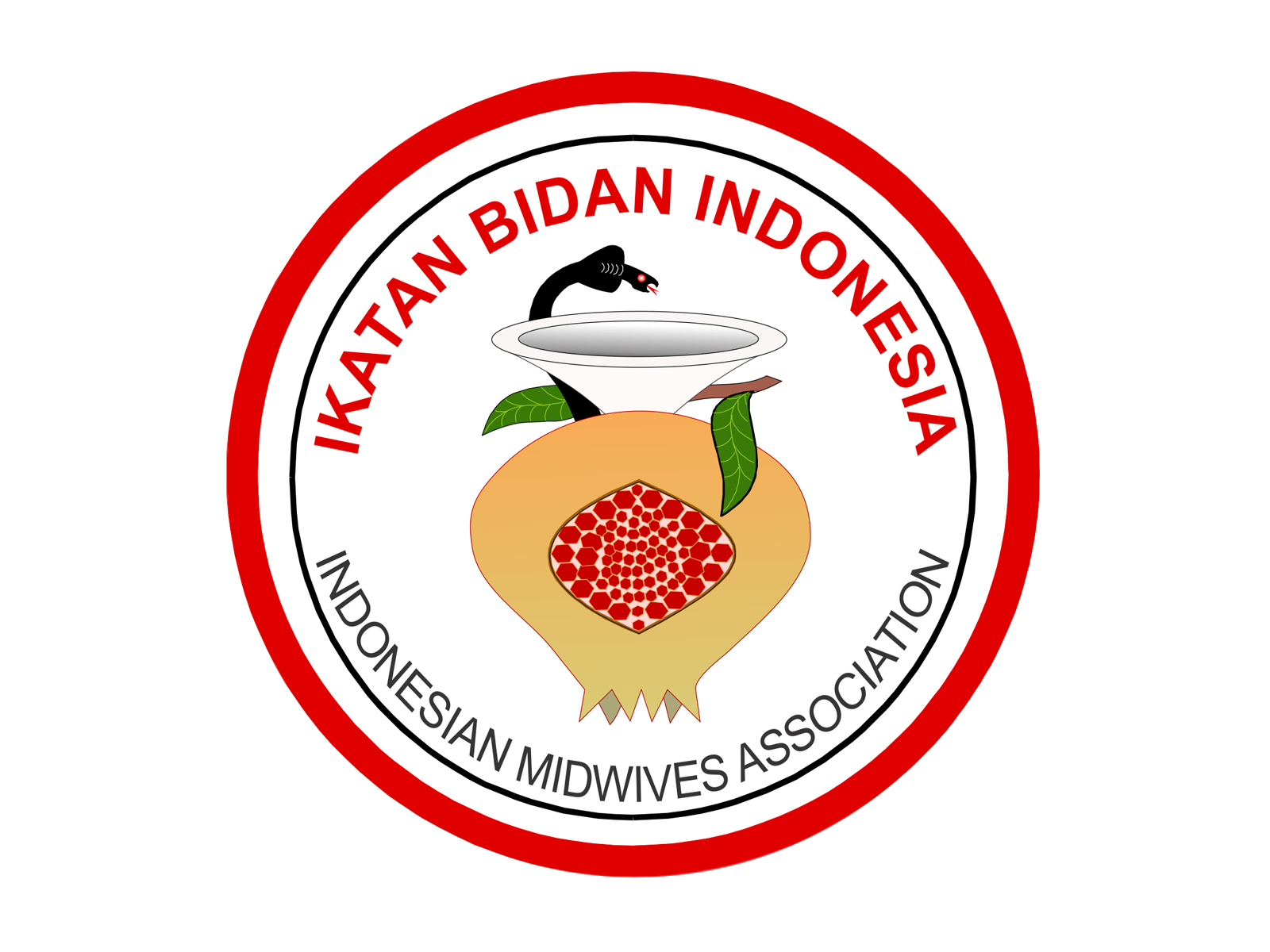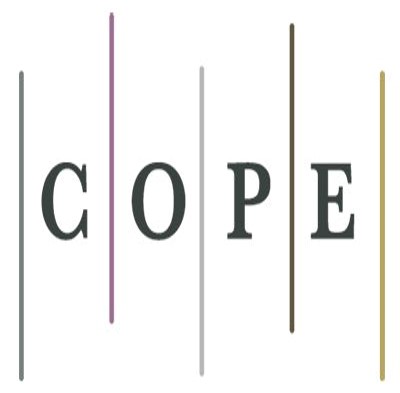- NEW PARENTS' ADAPTATION IN ASIA REGION TO PREVENT POSTPARTUM DEPRESSION: A SCOPING REVIEW
-
Abstract
Background: Postpartum adaptation is part of the life cycle experienced by parents in carrying out their new role. The inability to adapt to existing changes can result in postpartum depression. Purpose: This study aims to determine the early adaptations that new Asian parents can make to prevent postpartum depression. Method: This literature review uses a scoping review method guided by PRISMA ScR through database searches from PubMed, Sage Journals, Scopus, ScienceDirect, and websites outside the database filtering according to predetermined criteria. Results: The 6 pieces of reviewed literature had 429 postpartum mothers from Singapore, Malaysia, Arabia, Iran, and China with 245 primiparous mothers. Adaptations that can be made are related to the ability to adjust to physiological and psychological changes that occur through the support of partners, family, the environment, and professional health workers, as well as optimizing the latest technology and preventive interventions. Conclusion: Continuous support is needed to prevent postpartum depression. Health professionals can provide appropriate and effective preventive intervention by identifying adaptations that can be made in the early postpartum period.
References
2. World Health Organization (WHO). Depression and Other Common Mental Disorders: Global Health Estimates. Switzerland: WHO Document Production Services; 2017, https://www.who.int/publications/i/item/depression-global-health-estimates
3. Wang, Z., Lius, J., Shuai, H., Cai, Z., Fu, X., Liu, Y., Xiao, X., Zhang, W., Krabbendam, E., Liu, S., Liu, Z., Li, Z., & Yang, B. X. Mapping Global Prevalence of Depression among Postpartum Women. Translational Psychiatry. 2021; 11(543), https://doi.org/10.1038/s41398-021-01663-6
4. Salahinejad, A., Attaran, A., Naderi, M., Meuthen, D., Niyogi, S., & Chivers, D. P. Chronic Exposure to Bisphenol S Induces Oxidative Stress, Abnormal Anxiety, and Fear Responses in Adult Zebrafish (Danio Rerio). Sci Total Environment. 2021; 750, https://doi.org/10.1016/j.scitotenv.2020.141633
5. Putri, A. S., Wurisastuti, T., Suryaputri, I. Y., & Mubasyiroh, R. Postpartum Depression in Young Mothers in Urban and Rural Indonesia, Journal of Preventive Medicine and Public Health. 2023; 56(3), https://doi.org/10.3961/jpmph.22.534
6. Carlson, K., Mughal, S., Azhar, Y., Siddiqui, W., & May, K. Postpartum Depression. Nursing. Treasure Island (FL): StatPearls Publishing; 2024, https://pubmed.ncbi.nlm.nih.gov/33760432/
7. Qiu, X., Zhang, S., Sun, X., Li, H., & Wang, D. Unintended Pregnancy and Postpartum Depression: a Meta-Analysis of Cohort and Case-Control Studies. Journal of Psychosomatic Research. 2020; 138, https://doi.org/10.1016/j.jpsychores.2020.110259
8. Nisar, A., Yin, J., Waqas, A., Bai, X., Wang, D., Rahman, A., & Li, X. Prevalence of Perinatal Depression and Its Determinants in Mainland China: a Systematic Review and Meta-Analysis. Journal of Affective Disorders. 2020; 277: 1022–1037, https://doi.org/10.1016/j.jad.2020.07.046
9. Felder, J. N., Segal, Z., Beck, A., Sherwood, N. E., Goodman, S. H., Boggs, J., & Dimidjian, S. An Open Trial of Web-Based Mindfulness-Based Cognitive Therapy for Perinatal Women at Risk for Depressive Relapse. Cognitive and Behavioral Practice. 2017; 24(1): 26–37. https://doi.org/10.1016/j.cbpra.2016.02.002
10. Field, T. Postpartum Anxiety Prevalence, Predictors and Effects on Child Development: a Narrative Review. Journal of Psychiatry and Psychiatric Disorders. 2017; 51: 24-32, https://doi.org/10.1016/j.infbeh.2018.02.005
11. Desta, M., Memiah, P., Kassie, B., Ketema, D. B., Amha, H., Getaneh, T., & Sintayehu, M. Postpartum Depression and Its Association with Intimate Partner Violence and Inadequate Social Support in Ethiopia: a Systematic Review and Meta-Analysis. Journal of Affective Disorders. 2021; 279: 737–748, https://doi.org/10.1016/j.jad.2020.11.053
12. Ding, G., Niu, L., Vinturache, A., Zhang, J., Lu, M., Gao, Y., Pan, S., & Tian, Y. “Doing the Month” and Postpartum Depression among Chinese Women: A Shanghai Prospective Cohort Study. Women Birth. 2019; 33(2): 151-158, https://doi.org/10.1016/j.wombi.2019.04.004
13. Pao, C., Guintivano, J., Santos, H., & Meltzer-Brody, S. Postpartum Depression and Social Support in a Racially and Ethnically Diverse Population of Omen. Archives of Women’s Mental Health. 2019; 22(1): 105–114, https://doi.org/10.1007/s00737-018-0882-6
14. Sukmawati, S. T., Anshori, R. O., Pinem, L. H., Wardhani, M. A. K., Mega, Safitri, M. Z., Pratama, P. W. Y., & Sholeha, W. Pemanfaatan Aplikasi Digital Dalam Mencegah Depresi Postpartum: Literature Review. Jurnal Kesehatan Holistic. 2021; 5 (2): 31-39, https://doi.org/10.33377/jkh.v5i2.99
15. Ariyanti, R., Nurdiati, & Astuti. Pengaruh Jenis Persalinan Terhadap Risiko Depresi Postpartum pada Masa Nifas. Samudra Ilmu. 2016; 7(2): 98-105, https://doi.org/10.31101/jkk.304
16. Worthen, R. J., & Beurel, E. Inflammatory and Neurodegenerative Pathophysiology Implicated in Postpartum Depression. Neurobiology of Disease. 2022; 165, https://doi.org/10.1016/j.nbd.2022.105646
17. Payne, J. L., & Maguire, J. Pathophysiological Mechanisms Implicated in Postpartum Depression. Frontiers Neuroendocrinol. 2019; 52: 165-180, https://doi.org/10.1016/j.yfrne.2018.12.001
18. Bahiyatun. Buku Ajar Asuhan Kebidanan Nifas Normal. Jakarta: Penebit EGC; 2016.
19. Ariyanti, R., Nurdiati, & Astuti. Pengaruh Jenis Persalinan Terhadap Risiko Depresi Postpartum pada Masa Nifas. Samudra Ilmu. 2016; 7(2): 98-105, https://doi.org/10.31101/jkk.304
20. Cho, H., Lee, K., Choi, E., Cho, H. N., Park, B., Suh, M., ... & Choi, K. S. Association Between Social Support and Postpartum Depression. Scientific Reports. 2022; 12(1), https://doi.org/10.1038/s41598-022-07248-7
21. Sundari, S. W., Novayanti, N., Ratni, & Aulia, D. N. Dukungan Sosial dan Status Kesehatan Mental Ibu Pascasalin. Jurnal Ilmiah Kesehatan Diagnosis. 2023; 18(3): 2302-2531, https://doi.org/10.35892/jikd.v18i3.1525
22. Reid, K. M., & Taylor, M. G. Social Support, Stress, and Maternal Postpartum Depression: a Comparison of Supportive Relationships. Social Science Research. 2015: 54: 246–262, https://doi.org/10.1016/j.sresearch.2015.08.009
23. Tang, L., Zhu, R. and Zhang, X. Postpartum Depression and Social Support in China: A Cultural Perspective, Journal of Health Communication. 2016; 21(9): 1055-1061, https://doi.org/10.1080/10810730.2016.1204384
24. Johansson, M., Benderix, Y., & Svensson, I. ‘Mothers and Fathers’ Lived Experiences of Postpartum Depression and Parental Stress After Childbirth: a Qualitative Study, International Journal of Qualitative Studies on Health and Well-Being. 2020; 15(1), https://doi.org/10.1080/17482631.2020.1722564
25. Wuriastuti, T., & Mubasyiroh, R. Peran Dukungan Sosial pada Ibu dengan Gejala Depresi dalam Periode Pasca Persalinan. Buletin Penelitian Sistem Kesehatan. 2020; 23(3): 161-168, https://doi.org/10.22435/hsr.v23i3.3610
26. Nasr, R. S., Altharwi, K., Derbah, M. S., Gharibo, S. O., Fallatah, S. A., Alotaibi, S. G., Almutairi, K. A., & Asdaq, S. M. B. Prevalence and Predictors of Postpartum Depression in Riyadh, Saudi Arabia: a Cross Sectional Study, PLoS ONE. 2020; 15(2): 1–13, https://doi.org/10.1371/journal.pone.0228666
27. Mahiti, G. R., Mbekenga, C. K., Dennis, K. A., Hurtig, A. K., & Goicolea, I. Perceptions About the Cultural Practices of Male Partners during Postpartum Care in Rural Tanzania: a Qualitative Study, Global Health Action. 2017: 10(1), https://doi.org/10.1080/16549716.2017.1361184
28. Yim, I. S., Tanner, S. L. R., Guardino, C. M., Hahn-Holbrook, J., & Dunkel, S. C. Biological and Psychosocial Predictors of Postpartum Depression: Systematic Review and Call for Integration, Annual Review of Clinical Psychology. 2015; 11: 99–137, https://doi.org/10.1146/annurev-clinpsy-101414-020426
29. Ng, S. M., Leng, L. L., Chan, K. P., Lo, H. H., Yeung, A., Lu, S., Wang, A., & Li, H. Y. Study Protocol of Guided Mobile-Based Perinatal Mindfulness Intervention (GMBPMI)-a Randomized Controlled Trial. PLoS One. 2022; 17(7), https://doi.org/10.1371/journal.pone.0270683
30. Sim, J., & Waterfield, J. Focus Group Methodology: Some Ethical Challenges. Qual Quant. 2019; 53: 3003–3022, https://doi.org/10.1007/s11135-019-00914-5
31. Shorey, S., & Ng, E. D. Evaluation of Mothers' Perceptions of a Technology-Based Supportive Educational Parenting Program (Part 2): Qualitative Study, J Med Internet Res. 2019; 21(2), https://doi.org/10.2196/11065
32. Cuijpers P., Quero, S., Dowrick, C., & Arroll, B. Psychological Treatment of Depression in Primary Care: Recent Developments. Curr Psychiatry Rep. 2019; 21(12), https://doi.org/10.1007/s11920-019-1117
33. Guo, L., Zhang, J., Mu, L., & Ye, Z. Preventing Postpartum Depression with Mindful Self-Compassion Intervention: a Randomized Control Study. The Journal of Nervous and Mental Disease. 2020; 208(2): 101–107, https://doi.org/10.1097/NMD.0000000000001096
34. Rahmawati, A. Internet Cognitive Behavior Therapy for Postpartum Depression. Journal of Psychiatry Psychology and Behavioral Research. 2023; 4(1): 4-8, https://doi.org/10.21776/ub.jppbr.2023.004.01.2

This work is licensed under a Creative Commons Attribution-NonCommercial 4.0 International License.
Please find the rights and licenses in Jurnal Ilmiah Bidan (JIB). By submitting the article/manuscript of the article, the author(s) agree with this policy. No specific document sign-off is required.
1. License
The non-commercial use of the article will be governed by the Creative Commons Attribution license as currently displayed on Creative Commons Attribution-NonCommercial-ShareAlike 4.0 International License.
2. Author(s)' Warranties
The author warrants that the article is original, written by stated author(s), has not been published before, contains no unlawful statements, does not infringe the rights of others, is subject to copyright that is vested exclusively in the author and free of any third party rights, and that any necessary written permissions to quote from other sources have been obtained by the author(s).
3. User/Public Rights
JIB's spirit is to disseminate articles published are as free as possible. Under the Creative Commons license, JIB permits users to copy, distribute, display, and perform the work for non-commercial purposes only. Users will also need to attribute authors and JIB on distributing works in the journal and other media of publications. Unless otherwise stated, the authors are public entities as soon as their articles got published.
4. Rights of Authors
Authors retain all their rights to the published works, such as (but not limited to) the following rights;
- Copyright and other proprietary rights relating to the article, such as patent rights,
- The right to use the substance of the article in own future works, including lectures and books,
- The right to reproduce the article for own purposes,
- The right to self-archive the article (please read out deposit policy),
- The right to enter into separate, additional contractual arrangements for the non-exclusive distribution of the article's published version (e.g., post it to an institutional repository or publish it in a book), with an acknowledgment of its initial publication in this journal (Jurnal Ilmiah Bidan).
5. Co-Authorship
If the article was jointly prepared by more than one author, any authors submitting the manuscript warrants that he/she has been authorized by all co-authors to be agreed on this copyright and license notice (agreement) on their behalf, and agrees to inform his/her co-authors of the terms of this policy. JIB will not be held liable for anything that may arise due to the author(s) internal dispute. JIB will only communicate with the corresponding author.
6. Royalties
Being an open accessed journal and disseminating articles for free under the Creative Commons license term mentioned, author(s) aware that JIB entitles the author(s) to no royalties or other fees.
7. Miscellaneous
JIB will publish the article (or have it published) in the journal if the article’s editorial process is successfully completed. JIB's editors may modify the article to a style of punctuation, spelling, capitalization, referencing and usage that deems appropriate. The author acknowledges that the article may be published so that it will be publicly accessible and such access will be free of charge for the readers as mentioned in point 3.














